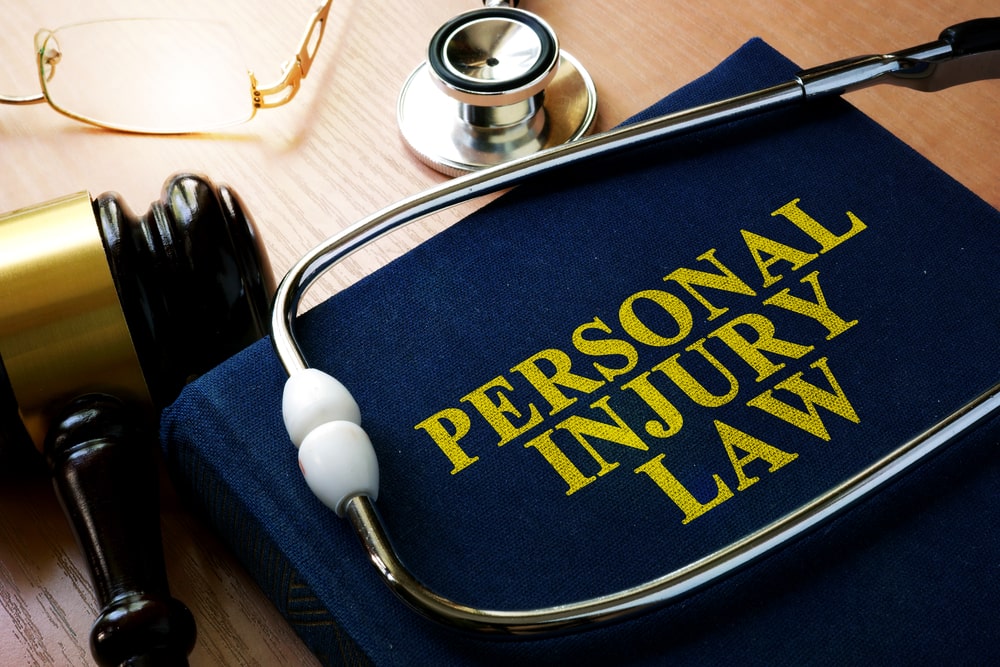HOUSTON PERSONAL INJURY ATTORNEY
Houston Personal Injury Frequently Asked Questions

10+
YEARS OF PERSONAL EXPERIENCE
5-Star
RATING ON
GOOGLE REVIEWS
1,000+
CASES AND
CLIENTS
$20 M
IN SETTLEMENTS & VERDICTS

Table of Contents
- Do I need a personal injury lawyer to file a claim?
- What should I do after an injury?
- What can I recover after a personal injury?
- How should I prepare for my personal injury consultation?
- Who can file a personal injury lawsuit in Texas?
- How much is my personal injury case worth in Texas?
- What is considered “maintenance and cure”?
Do I need a personal injury lawyer to file a claim?
If you believe that another party is at fault for an accident, an experienced personal injury attorney can support you during this challenging time, helping you claim the compensation you deserve by law – rather than what the insurance company thinks is fair.
Insurance companies work hard to reduce their losses and rarely offer what you deserve. We will make a strong case based on your story and the evidence available, placing us in a strong position to negotiate a favorable outcome for you – or go to trial.
What should I do after an injury?

If you have been injured, try to stay calm and follow these steps to help you prepare for a personal injury case in the state of Texas.
- Seek medical attention
The first thing you should do after being injured? Seek medical attention.
Go to the emergency room, your general physician, or a healthcare clinic as soon as possible—and if necessary, request for an ambulance to come to the scene of the accident.
Any delay in going to the hospital could have repercussions on your health or legal case. Most insurance companies consider getting medical attention within 72 hours after the injury to be a reasonable time frame.
As you speak with your doctor, mention all issues and pain, even if you think they are minor. On the other hand, however, do not embellish or exaggerate. Just be honest with your doctor and follow their orders.
- Report the accident to authorities
Failing to report an accident that results in injury or death is illegal. If you have been involved in an accident where someone is seriously injured call the local authorities so they may obtain the appropriate information from all parties involved and render aid.
While you are waiting for the police to arrive, if you are able, obtain information about the other driver such as: driver’s name; contact information; insurance information; vehicle information; and driver’s license information. Additionally, talk to witnesses and gather their contact information. Take pictures of the scene and the vehicles involved.
In some cases, due to your injury, you may not be able to collect all the information and take pictures. If this is the case, do not worry, your attorney can collect this information for you.
- Avoid speaking about your case
The only people you should discuss your case with are your doctor and your attorney. Whenever you talk about your case—whether to an insurance agent or opposing attorney—your attorney should be present.
Additionally, be careful when telling your friends and co-workers about your injury. Pay attention to what you say, and don’t give away details.
- Gather evidence and documentation
In a personal injury case, you and your attorney must prove that you were injured due to someone else’s negligence. To do so, you must provide evidence and documentation.
Collect records and documents of everything pertaining to your case: medical records, police reports, witness contact information, photographs, etc. You should also write a document detailing what happened before, during, and after the accident in your own words to help you recall the events later.
Keep all evidence and documentation until after your case is completely closed.
- Pay attention to the statute of limitations
Section 16.003 of the Texas Civil Practice & Remedies Code outlines the Texas personal injury statute of limitations, which states that civil actions for “personal injury” must be filed no later than two years after the day the cause of action accrues.
This means two years from the date of the accident that led to the injury, in most circumstances.
After the careless or intentional act of another indiviudal causes you injury, you want to ask the courts in Texas for a civil remedy (damages) for your losses, which is when the two-year deadline applies, whether the case is driven by the liability principle of “negligence” (which applies to most accidents) or intentional tort (which applies to civil assault and battery and other purposeful conduct).
- Obtain legal representation
After you have received medical attention, you should find and retain an experienced personal injury attorney. You need someone who has your best interests in mind to help you build your lawsuit.
Think about it this way: Insurance companies and other defendants will have legal counsel. You should, too.
What can I recover after a personal injury?
In Texas, you have the right to seek financial compensation for any expenses related to your accident. Such expenses can cover a wide range, including all future anticipated expenses related to your accident. Such expenses may include:
All medical care related to your injury, including all future medical expenses associated with your accident. Such future expenses may include follow-up surgical procedures, physical therapy and prescription medications for chronic pain.
Compensation for property damage caused by the accident. This may include vehicle repair or replacement costs, as well as damage to your home, business or other property.
Modifications to your home if you have a permanent disability due to your accident.
Replacement income if you need to rest and recover after your accident and cannot work during this time.
Lost future income if you cannot return to work due to a severe injury.
The bottom line is you should not have to pay for someone else’s reckless or negligent behavior. If someone caused your injury, you should be financially compensated for all expenses related to your accident.
How should I prepare for my personal injury consultation?
- Write down all the questions that you want to ask your personal injury attorney.
- Avoid communicating with the insurance company before you consult with a lawyer (or at least do not give them a recorded statement when speaking with an insurance adjuster and stick to the facts when answering their questions).
- Gather and have all documents available for your attorney that might be relevant to your case.
- Make copies of all the documents you are willing to share with the lawyer, including medical records, correspondence with insurance companies, pay stubs, court documents, and many others.
- Do not keep any relevant details about your injury or accident from the attorney.
- Be sure to take notes during the meeting (it is not realistic to remember everything that was discussed).
Who can file a personal injury lawsuit in Texas?
In many cases, only the person who was injured in an accident can file a lawsuit against the at-fault party. The person who files the lawsuit is known as the plaintiff. The person or business the plaintiff is taking legal action against is called the defendant.
However, there are sometimes exceptions concerning who can take legal action. One of the most common examples is fatal accidents in which someone died due to someone else’s reckless or negligent behavior. In such cases, the following people can often file a wrongful death lawsuit in Texas:
- Spouse (husband or wife) of the deceased
- Parent (mother or father) of the deceased
- Surviving children, including adult children in the event of a parent’s death
If immediate family members do not file a wrongful death claim within three months of a person’s death in Texas, the executor of the deceased person’s estate has the right to file a claim, unless a surviving family member specifically asks the estate to not do so.
How much is my personal injury case worth in Texas?
It is impossible to assess the potential value of your case without knowing the details. There is no golden formula to use. That’s why we place such an emphasis on knowing your story before discussing case value estimates. Many factors are at play, including:
- The nature and seriousness of your injury
- The precise actions of the at-fault party in the accident
- What you can and can’t prove
- The evidence available from medical reports, doctor testimony, police, witnesses, etc.
- Your medical expenses
- The short- and long-term effects of the injury
- Whether punitive damages could apply
- Insurance limits that may apply
After an initial case evaluation, we will generally be able to assess liability, damages, and the insurance limitations to provide an honest estimate based on our experience of similar personal injury cases,
A personal injury claim in Houston can cover both special damages and general damages.
Special damages are your medical bills, lost earnings, property damage, and any other “out of pocket” expenses. General damages include emotional and physical pain and suffering, loss of consortium, and other results of your injury that cannot be easily quantified in monetary terms.
What is considered “maintenance and cure”?
Maintenance and cure are no-fault benefits that injured seamen are entitled to under the Jones Act. These benefits include medical expenses and an allowance for day-to-day expenses.
In many cases, an injured sailor may pursue additional or alternate compensation under other laws such as the Outer Continental Shelf Lands Act or Long shore and Harbor Workers’ Compensation Act.
To qualify for maintenance and cure benefits, you must meet the following criteria:
- You are employed on a vessel that operates on navigable waters
- The injury occurred while you were on board the ship or in the scope of your employment
Maintenance benefits cover your daily living expenses. These maintenance payments should be sufficient to cover:
- Food
- Rent
- Necessary utilities like water, electricity, and gas
- Homeowners insurance
Cure benefits refer to the medical cost necessary to treat your injury. These expenses commonly include:
- Hospital and doctor bills
- Medication
- Medical tests
- Medical equipment such as crutches or a wheelchair
Do I need a personal injury lawyer to file a claim?
What should I do after an injury
What can I recover after a personal injury?
How should I prepare for my personal injury consultation?
Who can file a personal injury lawsuit in Texas?
How much is my personal injury case worth in Texas?
What is considered “maintenance and cure”?
$2,000,000
CAR ACCIDENT SETTLEMENT
$1,130,000
PEDESTRIAN SETTLEMENT
$1,100,000
SPINAL CORD INJURY
$955,000
PEDESTRIAN ACCIDENT
$1,300,000
CAR ACCIDENT SETTLEMENT
$980,000
CAR ACCIDENT SETTLEMENT
$960,000
MOTORCYCLE ACCIDENT
$850,000
SLIP & FALL SETTLEMENT
$250,000
LONG-TERM DISABILITY
A personal approach to personal injury in Houston, Texas
“As a client to this Law Firm, I found it to be rewarding base on their work ethics. With there expertise, knowledge, flexibility and being responsive to their client needs. They will see that their client receive the best outcome on there case. There are many people out there that have bad ideas about lawyers, but DeHoyos Accident Attorneys will make sure that you’re not stressed about anything pertaining to your case. I’ll recommend that you seek this Lawyer and Law Firm for any unraveling situation you might face.”
RIDLEY OSBOURNE
“I can’t say enough good things about DeHoyos Accident Attorneys! Mr. Ryan DeHoyos is extremely knowledgeable in his field of Personal Injury. I was injured in a motor vehicle accident last year and Mr. DeHoyos stopped at nothing to get me the compensation I deserved. He kept me updated on my case regularly and guided me to get the medical care I needed. Additionally, his staff is so kind and caring, especially Ashley… Thank you, DeHoyos Accident Attorneys for your professionalism in closing my case…and WINNING big!”
RAVEN DOLBERRY














